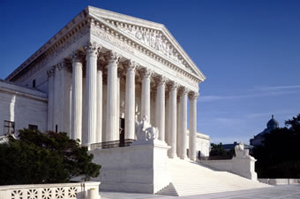Georgia Supreme Court Shuts Down Witness-Only Closings
Once again, lawyers are required to be lawyers.
In case you didn’t read Greg Land’s Daily Report article last week, the Supreme Court reviewed and recently approved Formal Advisory Opinion 13-1, officially closing the door (at least in Georgia) on the practice of witness-only closings. While some large mortgage lenders may not be overjoyed, the GA Bar, the GA Real Estate Closing Attorneys Association, and closing attorneys with whom I’ve communicated are all praising the decision. In summary, the Court confirmed that lawyers must actually perform legal work and be responsible for that work.
The history of witness-only closings and FAO 13-1
During the real estate boom, several national lenders decided to change the way they manage real estate transactions. In an effort most likely geared toward increased efficiency, reduced liability, and larger profits, these lenders hired attorneys to show up and “close” real estate transactions with borrowers. The lawyers were there only to ensure that documents were signed correctly – not to perform any legal work or represent anyone in the transaction. The witness-only closing was born. If errors or ambiguities were later discovered, there was no responsible party.
 After extensive review and much debate, the GA Bar’s Formal Advisory Board issued FAO 13-1 about a year ago, and it was filed in January 2014. In February 2014, the GA Bar asked the GA Supreme Court to review and approve FAO 13-1, essentially making it enforceable by the Bar against all Georgia lawyers. The Court was asked to review and affirm the Formal Advisory Board’s position on three very specific questions:
After extensive review and much debate, the GA Bar’s Formal Advisory Board issued FAO 13-1 about a year ago, and it was filed in January 2014. In February 2014, the GA Bar asked the GA Supreme Court to review and approve FAO 13-1, essentially making it enforceable by the Bar against all Georgia lawyers. The Court was asked to review and affirm the Formal Advisory Board’s position on three very specific questions:
- Does a Lawyer violate the Georgia Rules of Professional Conduct when he/she conducts a “witness only” real estate closing?
- Can a Lawyer who is closing a real estate transaction meet his/her obligations under the Georgia Rules of Professional Conduct by reviewing, revising as necessary, and adopting documents sent from a lender or from other sources?
- Must all funds received by a Lawyer in a real estate closing be deposited into and disbursed from the Lawyer’s trust account?
And the results are in…
You can review the full details of the Supreme Court decision on the GA Bar website, but the Court affirmed that GA lawyers cannot ethically conduct witness-only closings. Lawyers must act “with competence” in reviewing documents, detecting potential issues, and resolving them. Funds must be received and disbursed through the lawyers’ trust accounts. This is exactly how we treat all other client relationships.
Sorry to take a harsh tone, but lawyers are supposed to practice law, not babysit document signings. The lenders were creating the perception that the parties (or process) were represented by counsel, giving some borrowers an unrealistic feeling of security. Georgia lawyers are now on the hook to do their jobs, and must treat this transaction process like other client relationships. I would imagine that lenders’ transaction costs will increase now that lawyers have to take responsibility for the transaction, but this should minimize the chances of future problems caused by document, title, and other errors. Even if lenders pass the higher transaction costs along to consumers, the incremental expense far outweighs the potential damage caused by a shoddy closing. In the end, consumers win.
Witness-only closing attorneys are now on notice
I know of at least a few lawyers who decided not to follow the principles of FAO 13-1 while it was under review. The issue is settled, so don’t expect much leniency going forward should you find yourself the subject of a Bar disciplinary grievance. This is also a win for Georgia lawyers. All legal documents should be reviewed by lawyers, and the Georgia Supreme Court’s approval of FAO 13-1 is a big step toward protecting the integrity of our state’s legal industry. Other states should consider adopting the same type of protection.
Douglas Chandler
Join Douglas’ LinkedIn group: Attorney Ethics and Professional Liability.

